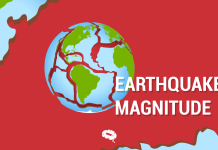[ad_1]
Booster doses for general population ‘are not appropriate at this stage in pandemic’, international scientists say.
Additional COVID-19 vaccine booster shots are not needed for the general population, a group of international scientists has said in a new report in a medical journal.
The report, published in The Lancet on Monday, concluded that even with the threat of the more contagious Delta variant, “booster doses for the general population are not appropriate at this stage in the pandemic.”
“Any decisions about the need for boosting or timing of boosting should be based on careful analyses of adequately controlled clinical or epidemiological data, or both, indicating a persistent and meaningful reduction in severe disease,” the scientists wrote.
The scientists said more evidence was needed to justify boosters, and that vaccines remain highly effective against severe symptoms of COVID-19, across all the main virus variants including Delta.
“Taken as a whole, the currently available studies do not provide credible evidence of substantially declining protection against severe disease, which is the primary goal of vaccination,” said lead author Ana-Maria Henao-Restrepo, of the WHO.
She said vaccine doses should be prioritised to people around the world still waiting for a jab.
“If vaccines are deployed where they would do the most good, they could hasten the end of the pandemic by inhibiting further evolution of variants,” she added.
That view runs counter to US government plans to begin offering another round of shots to many fully vaccinated Americans as soon as next week, contingent on approval from health regulators.
The authors acknowledged that some individuals, such as those who are immunocompromised, could benefit from an additional dose.
A panel of experts that advises the US Food and Drug Administration on vaccines plans to meet on September 17 to discuss additional doses of the Pfizer-BioNTech shot, the first step in a wider booster rollout.
The Lancet article’s authors included WHO top scientists Soumya Swaminathan, Ana-Maria Henao-Restrepo and Mike Ryan.
Vaccine inequity
Some countries have started offering extra doses due to fears about the much more contagious Delta variant, causing the WHO to call for a moratorium on third jabs amid concerns about vaccine supplies to poorer nations, where millions have yet to receive their first jab.
“Current vaccine supplies could save more lives if used in previously unvaccinated populations,” the authors wrote.
Countries like France have started distributing third jabs to the elderly and people with compromised immune systems, while Israel has gone further, offering children 12 and older a third dose five months after receiving a second jab.
WHO chief Tedros Adhanom Ghebreyesus has called on countries to avoid giving out extra COVID jabs until the end of the year, as the UN health agency urges all nations to vaccinate at least 10 percent of their populations by the end of this month, and at least 40 percent by the end of this year.
The Lancet article concluded that the current variants had not developed sufficiently to escape the immune response provided by vaccines currently in use.
The authors argued that if new virus mutations do emerge that are able to evade this response, it would be better to deliver specially modified vaccine boosters aimed at the newer variants, rather than a third dose of an existing vaccine.
[ad_2]
Source link











